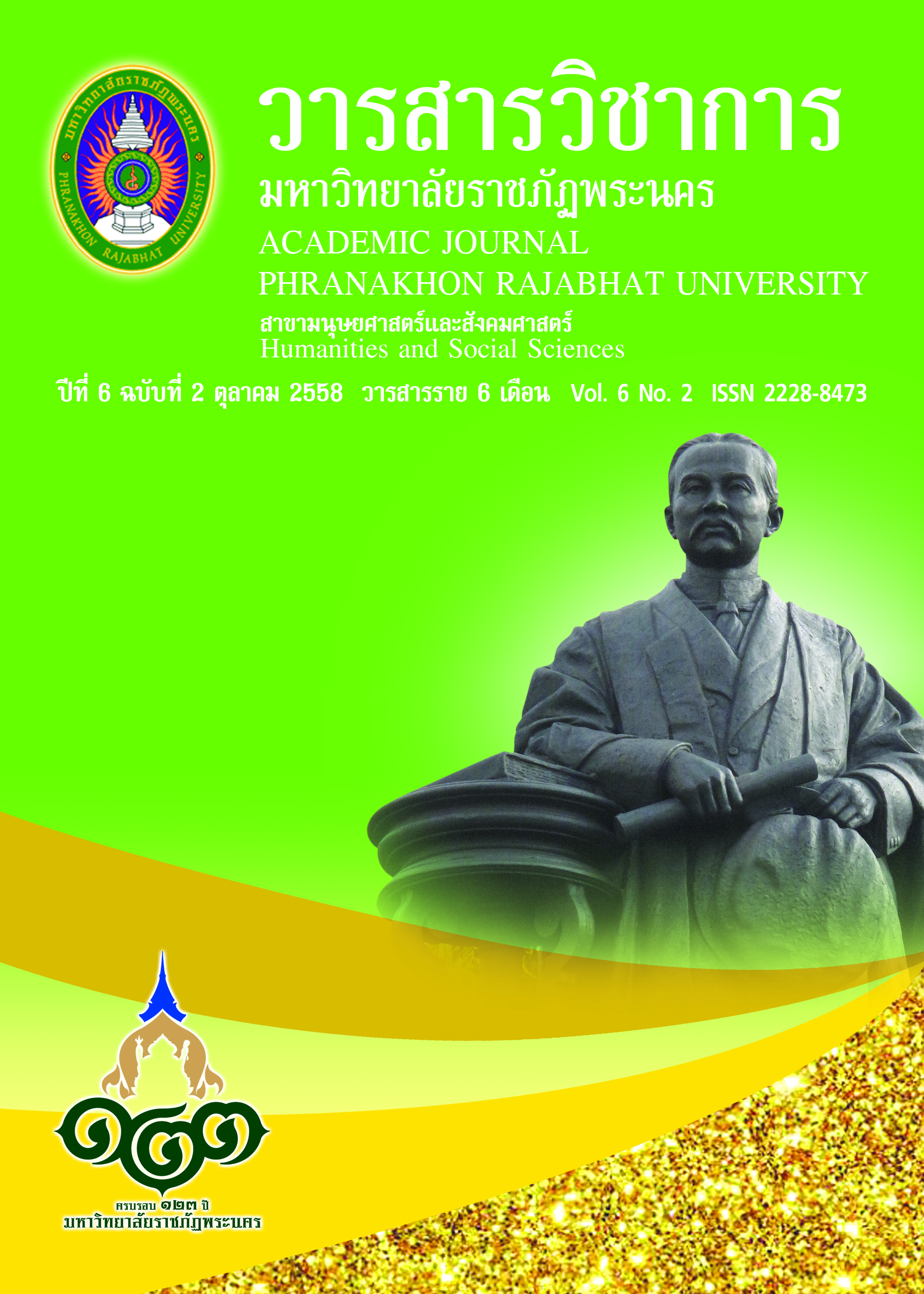สาขาวิชาพุทธศาสนาและปรัชญา มหาวิทยาลัยมหามกุฏราชวิทยาลัย ในพระบรมราชูปถัมภ์
Keywords:
การบังคับใช้กฎหมายอาญา, กระบวนการยุติธรรม, พุทธปรัชญา, Criminal Law Enforcement, Justice System, Buddhist PhilosophyAbstract
การวิจัยเรื่อง รูปแบบการบังคับใช้กฎหมายอาญาในกระบวนการยุติธรรมตามแนวพุทธปรัชญา
มีวัตถุประสงค์ ดังนี้ 1) เพื่อศึกษาการบังคับใช้กฎหมายอาญาในกระบวนการยุติธรรม 2) เพื่อศึกษาหลักพุทธปรัชญาที่เหมาะสมกับการบังคับใช้กฎหมายอาญาในกระบวนการยุติธรรม 3) เพื่อบูรณาการการบังคับใช้กฎหมายอาญาในกระบวนการยุติธรรมตามแนวพุทธปรัชญา และ 4) เพื่อนำเสนอแนวทางและการสร้างองค์ความรู้ใหม่เกี่ยวกับ ”รูปแบบการบังคับใช้กฎหมายอาญาในกระบวนการยุติธรรมตามแนวพุทธปรัชญา„ได้ดำเนินการวิจัยเชิงคุณภาพ (Qualitative Research) แบบวิจัยเอกสาร (Documentary Research) และ
บูรณาการด้วยการสัมภาษณ์เชิงลึก (In-depth Interview) โดยมีเครื่องมือที่ใช้ในการวิจัย คือ การค้นคว้าข้อมูลจากเอกสารต่าง ๆ และ จัดทำบทสัมภาษณ์เพื่อการสัมภาษณ์เชิงลึก เมื่อได้ผลจากการสัมภาษณ์เชิงลึกแล้วจึงนำมาวิเคราะห์ จัดจำแนก และดำเนินการบูรณาการโดยพิจารณาความสอดคล้องกับเนื้อหาที่เป็นผลการวิจัยจากการวิจัยเชิงคุณภาพแบบวิจัยเอกสาร แล้วนำมาใช้ในการจัดทำรูปแบบ (Model) สำหรับการบูรณาการ การบังคับใช้กฎหมายอาญาในกระบวนการยุติธรรมตามแนวพุทธปรัชญา ผลการวิจัยพบว่า 1) การบังคับใช้กฎหมายอาญาในกระบวนการยุติธรรม คือ การดำเนินงานของ 4 หน่วยงาน ได้แก่ตำรวจซึ่งมีอำนาจหน้าที่ในการสืบสวนสอบสวนเพื่อแสวงหาผู้กระทำผิด อัยการซึ่งมีอำนาจหน้าที่ฟ้องผู้กระทำผิด ศาลซึ่งมีอำนาจหน้าที่พิจารณาพิพากษาคดีต่อผู้ที่กระทำผิด ราชทัณฑ์ซึ่งมีอำนาจหน้าที่บังคับโทษทางอาญาแก่ผู้กระทำผิด 2) หลักพุทธปรัชญาที่เหมาะสมกับการบังคับใช้กฎหมายอาญาในกระบวนการยุติธรรมในงานวิจัยนี้ ได้แก่ หลักพุทธปรัชญาในหัวข้อต่อไปนี้ ได้แก่ หลักอริยสัจ 4 และหลักอคติ 4 3) การบูรณาการการบังคับใช้กฎหมายอาญาในกระบวนการยุติธรรมตามแนวพุทธปรัชญาจะต้องใช้วิธีนำหลักธรรมดังกล่าวมาบูรณาการเพื่อให้การใช้ดุลพินิจของเจ้าหน้าที่ผู้บังคับใช้กฎหมายอาญาในกระบวนการยุติธรรม ด้านการสืบสวนสอบสวนด้านการฟ้องคดี ด้านการพิจารณาพิพากษาคดี และด้าน การบังคับโทษ มีความเหมาะสมยิ่งขึ้น ซึ่งจะก่อให้เกิดผลดี คือ การบังคับใช้กฎหมายอาญาอย่างมีศีลธรรมมีความยึดมั่นและกล้าทำในสิ่งที่ถูกต้อง มีความโปร่งใส 4) องค์ความรู้ใหม่ที่ได้จากการวิจัย คือรูปแบบการบูรณาการการบังคับใช้กฎหมายอาญาในกระบวนการยุติธรรมตามแนวพุทธปรัชญา เรียกว่า ”MIT„ Model กล่าวคือ M = Morality ได้แก่ ความมีศีลธรรม เกิดจากการบูรณาการข้อบกพร่องของการ บังคับใช้กฎหมายอาญาในกระบวนการยุติธรรม ด้วยมรรคในอริยสัจ 4 และอคติ 4 I = Integrity ได้แก่ ความยึดมั่นและกล้าทำในสิ่งที่ถูกต้อง เมื่อมีศีลธรรม รักษาศีลธรรมไม่ไปละเมิดศีลธรรม ก็ชื่อว่ายืนหยัดทำในสิ่งที่ถูกต้องและ T = Transparency ได้แก่ ความโปร่งใส เมื่อมีศีลธรรม มีความยึดมั่นและกล้าทำในสิ่งที่ถูกต้อง
The objectives of the dissertation entitled ”The Model of Criminal Law Enforcement in Justice System according to Buddhist Philosophy„ were as follows : (1) to study the criminal law enforcement in justice system, (2) to study the appropriate Buddhist Philosophy for the criminal law enforcement in justice system, (3) to integrate the criminal law enforcement in justice system according to Buddhist Philosophy, and (4) to propose guidelines and a new ideology of an integrative model of the model of criminal law enforcement in justice system according to Buddhist Philosophy. This study followed a qualitative research with a documentary research pattern integrated with in-depth interviews. The data collected from documents and in-depth interviews were brought to analysis, classification, and integration into a model for the criminal law enforcement in justice system according to Buddhist Philosophy. The results of the study were found that: 1) Criminal law enforcement in justice system is normally implemented by four government agencies; the police who have duties in investigating and finding the offenders, the prosecutors who make prosecution orders to the offenders, the court who testifies at hearings and judges the offenders, and the corrections officers who impose the criminal penalty upon the offenders. 2) The appropriate Buddhist Philosophy principles for the criminal law enforcement in justice system are the Four Noble Truths and the four Prejudices. 3) To integrate the Criminal Law enforcement in justice system according to the Buddhist Philosophy needs to be applied appropriately and rightly with the discretion of law enforcement officers in the justice system; investigation, prosecution, judgment, and enforcement. Proceedings the Criminal Law enforcement in justice system based on morality integrity and transparency could produce a good result to the justice system. 4) The new ideology derived from this study was an integrative model for the Criminal Law enforcement in justice system according to the Buddhist Philosophy. The model was called "MIT" Model which came from Morality in integrating the Criminal Law enforcement in justice systems with Magga in the Four Noble Truths and the four prejudices, Integrity to do the right things, and Transparency on working with morality and without prejudices
Downloads
How to Cite
Issue
Section
License
"บทความวิชาการในวารสารฉบับนี้ ถือเป็นความรับผิดชอบของผู้เขียนเท่านั้น"
สงวนลิขสิทธิ์ตามพระราชบัญญัติลิขสิทธิ์




